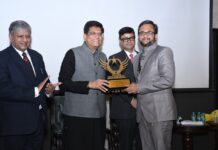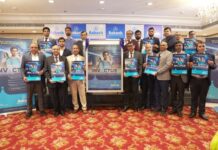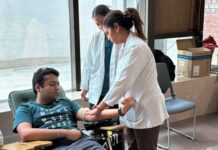New Delhi, June 06, 2020: Academics warn of the risks remote interviewing by police could pose to some of the more vulnerable witnesses and victims of crime.
The COVID-19 pandemic lockdown has forced everyone to seek innovative and often virtual or remote solutions for dealing with day-to-day interactions that would normally be face-to-face. Social distancing rules are particularly challenging for police and the criminal justice system in general, where face-to-face interactions are a daily occurrence.
One potential solution that is being used is the Remote Interviewing of witnesses and victims. It has been widely reported that certain types of crime have increased during lockdown, in particular domestic abuse, assaults and child abuse, all of which require urgent action. A recent review of these practices suggests that remote interviewing is not always appropriate for these vulnerable witnesses and victims.
The team of academics reviewed the challenges being faced by the criminal justice system during lockdown. Professor Becky Milne, Centre of Forensic Interviewing, University of Portsmouth, explains, “Police have had little choice but to continue to investigate crime, which includes gathering information from vulnerable individuals. Even now when lockdown is beginning to lift, it appears that social distancing will be part of everyday life for some considerable time and so these challenges will not disappear.”
To ascertain whether a remote interview is feasible, the reviewers call for a full risk assessment to be conducted. Such an assessment should consider the trauma levels of the interviewee, any additional support required within the interview, situational factors for example the interviewee location, and support networks for the victims or witness.
There are a series of challenges that must be considered when interviewing remotely. Some victims will need additional support during an interview due to trauma or poor mental health. Children in particular will need specialist support whilst being interviewed, providing remote support in these circumstances is almost impossible.
Another difficulty is that some interviewees may not have access to the relevant technology or the space to be interviewed privately. By their very nature remote interviews automatically exclude many of the most vulnerable witnesses and victims.
There are also concerns around the quality of a remote interview, many of these individuals will be traumatised by what they’ve witnessed and experienced. One of the best ways to manage trauma is through rapport and there is currently little understanding of whether remotely a rapport can be built up and maintained adequately.
Professor Milne says, “Even where a risk assessment has taken place it can be impossible to predict who may unexpectedly experience trauma and stress during questioning even when recalling a seemingly minor event. If interviews proceed in the absence of a clear understanding of the needs of witnesses and victims then memory may be impoverished or error prone whereas with appropriate support this might be avoided. Any on-line interactions should be visually/audio recorded, to ensure that there is a record of the legitimacy and integrity of the process.
“The main aim of this review is to highlight the many complexities of remote interviewing. The risks of a blanket policy or ad hoc introduction of remote interviewing that does not consider individual and situational need may significantly outweigh any potential benefits”.
For further information please contact:
Emma Gaisford, Media Officer, University of Portsmouth, email: emma.gaisford@port.ac.uk
The review was carried out by: Professor Becky Milne, Centre of Forensic Interviewing, University of Portsmouth; Professor Coral Dando, Criminal, Investigative & Forensic Research Group, University of Westminster and Dr Kevin Smith, National Crime Agency.
The University of Portsmouth is a progressive and dynamic university with an outstanding reputation for innovative teaching and globally significant research and innovation.
It was rated ‘Gold’ in the UK government’s Teaching Excellence Framework (TEF) and was ranked in the top 150 under 50 in the world according to the Times Higher Education rankings. The University is also 21st in the Guardian’s 2020 league table and was ranked number one in the UK for boosting graduate salaries according to The Economist.
The University’s research and innovation culture is impacting lives today and in the future and addressing local, national and global challenges across science, technology, humanities, business and creative industries. http://www.port.ac.uk/
Corporate Comm India(CCI Newswire)































